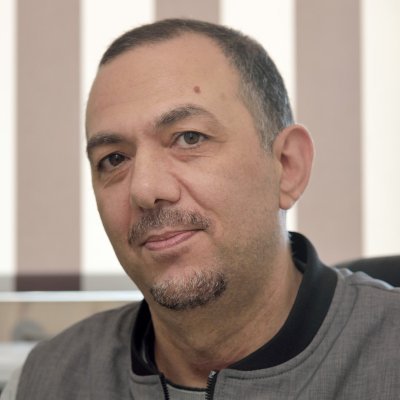Vassilis Amiridis
National Observatory of Athens (Greece)
Vassilis Amiridis (VA) was born in Göteborg, Sweden, in 1971. He received his B.Sc. in Physics, M.Sc. in Environmental Sciences and Ph.D. in Atmospheric Physics at the Aristotle University of Thessaloniki, Greece in 1998, 2000 and 2006 respectively. Since 2006, VA is a Researcher of the Institute for Astronomy, Astrophysics, Space Applications and Remote Sensing (IAASARS) of the National Observatory of Athens (NOA) in Greece. He is working on climate research and he focuses on the impact of atmospheric aerosols and clouds on radiation and extreme weather. His research is mainly based on advanced ground-based and space-borne remote sensing observations (passive and active remote sensing techniques) and theoretical models.
VA has participated in more than 60 International and European research grants and experimental campaigns, been Principal Investigator in 37 projects (10 EU-funded, 18 ESA-funded, 9 nationally funded), attracting a research funding of more than 16 M€ in total. He has more than 180 refereed papers in peer-reviewed scientific journals and his work received approximately 5000 citations from third-party (h-index of 43 in Web of Science / 8000 citations, h-index = 50 and i10-index = 120 in Google Scholar). Moreover, VA participated in more than 150 conferences, co-chaired 8 of them and has given 25 invited/keynote talks. He is a member of the editorial board of EGU’s Atmospheric Measurement Techniques Journal (Copernicus Publications, Impact Factor = 3.2) and Remote Sensing (Impact Factor = 3.9) and he is active reviewer in ~25 scientific Journals in his field. VA is leading the Group for Remote Sensing of Aerosols, Clouds and Trace Gases (ReACT) in IAASARS/NOA, currently composed of 25 members.
VA is responsible for the operation and data exploitation of the 24/7 PollyXT sophisticated lidar system, part of the European Aerosol Research Lidar Network (EARLINET). He is also the PI of the Remote Sensing National Facilities of IAASARS/NOA at the island of Antikythera and the recently established PANGEA Observatory. He is in charge of the operations for the Cal/Val program of ESA for ADM-Aeolus and EarthCARE in Greece, employing the official ESA ground-based mobile lidar system which is under development by IAASARS/NOA and Raymetrics S.A. (EVE). He is responsible for the coordination of a network of 80 International research organizations, including NASA, ESA and JAXA Space Agencies, to consolidate a Best Practice document for Aerosol, Cloud, and Precipitation validation (ACPV project), for the International Committee on Earth Observation Satellites (CEOS).
His lidar-related activities have been acknowledged by the European Aerosol Research Lidar Network (EARLINET), which has elected VA as a council member for the periods 2012-2022. Moreover, VA acted as the Greek National Delegate for the COPERNICUS Committee (2014-2017), for the Interim ACTRIS council (2018-today) and the ESFRI Environment SWG (2020-today). Moreover, he is a member of the ESA-Aeolus Science and Data Quality Advisory Group (SAG, 2018 – today). Lastly, VA is a member of the Steering Committee of the Sand and Dust Storm Warning Advisory System (SDS-WAS) of the World Meteorological Organization (WMO) (2018 – today) and an elected member of the International Coordination Group for Laser Atmospheric Studies (ICLAS, 2022-2024).
He has received two European Research Council (ERC) Grants, one for understanding the desert dust cycle and the factors governing the transport of mineral particles (D-TECT CoG), and one for delivering new observation techniques of atmospheric aerosols (PM-scanner PoC).

